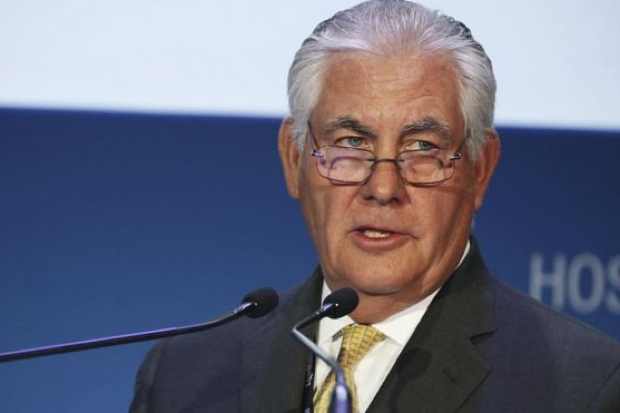Well, Islamists certainly have a useful working knowledge of the Christian calendar — probably more than most secular Brits — which accounts for the timing of today’s bloody attacks on Coptic churches in Tanta and Alexandria — the death toll is 45, and counting. The unfortunate Copts starting their Holy Week services today were intending to commemorate the Passion of Christ, not to join it themselves. As the British Coptic Bishop Angaelos observed, ‘As we celebrate Palm Sunday today and Christ’s entry into Jerusalem, we now also mark the entry of those who have passed today into the heavenly Jerusalem.’
Well quite so, and the toll in Alexandria might have included the Coptic pope Towadros II, who was at the mass, if the attackers had been even luckier. Pope Francis, who has taken a notably eirenic approach to relations with Islam, is due to visit Egypt later this month. He should go; an encounter with a persecuted church may lend an edgy realism to his benign approach. And, as Damian Thompson reminds us today, this is hardly a one-off attack, an aberration, so much as a consistent pattern in Egypt; see the reports by the excellent body, Aid to the Church in Need.
So, what will the Foreign Secretary make of the attack? Does it fit into anything that passes for a coherent foreign policy? Right now, we have been left in no doubt what the priority of British foreign policy is: expressing a dim view of Russia and its approach to the conflict in Syria. Not just the sarin gas attack on civilians allegedly by the Syrian airforce, but its backing for the Assad regime generally. Boris Johnson has cancelled a visit to Moscow, and is proposing to blend his foreign policy with that of the entire G7. The Russian embassy’s riposte was quite funny, actually: it provided a ‘soft power’ link to the 1812 overture. (At present, the view in London is that relations with the UK government are so bad, the only means of communication is through culture.)
So, at a time when Islamic extremists have conducted a series of quite characteristically murderous attacks on Christians in the Middle East and on European cities from St Petersburg to Westminster, Britain is choosing to make Russia its prime antagonist. The sarin attack, allegedly by the Assad regime, has quite rightly elicited revulsion but does it actually alter the way we view the conflict, in that we’d prefer regime change of any kind to the continuance of the existing government in power? Does it mean we prefer to focus on Russia’s responsibility for the attack – in the Michael Fallon argument, for not preventing it – to any attempt to understand its strategy? The Russian approach, besides its strategic interests, is that the forces ranged against the Damascus regime are worse than its man, Assad; that the Islamists on the other side, including al Nusra in Idlib, are more dangerous. That is a coherent approach. It’s one thing to argue that President Assad is so tainted by war crimes he can’t be suffered any longer, even as a figurehead; quite another to seek, as Britain has been doing from the outset, outright regime change without any guarantee that the alternative won’t include the extremists who have been part of the problem in the region.
The Trump administration has taken a different approach. It has bombed the Shayrat airfield from which the chemical attacks were launched, as a signal of abhorrence of the modus operandi of the Syrian forces but it went no further. Rex Tillerson’s visit is going ahead; President Trump did not condemn President Putin; and the State Department has indicated that the thrust of US policy – viz, to regard IS as the primary problem in Syria and Iraq, not the regime – as unchanged. Meanwhile, it is promoting the peace process (though the US ambassador to the United Nations Nikki Haley appears to offer a differing view on Assad’s future to Tillerson’s), which could end with a power-sharing deal that allows for the continuance of the regime, with or without Assad himself.
That strikes me as a more sensible foreign policy than the UK one. Insisting on regime change in Syria, even when the Damascus government seems likely to win the war with Russian help, while declaring its consistent antipathy to Moscow, is not a useful or coherent strategy. It not only ignores the greater threat from Islamist extremist groups, but is bent on undermining the one power in Syria that has the ability to defeat them. And right now, when Russian warships are making for Syria, it strikes me as inflaming antagonism, not promoting engagement. When Islamism is active, expansionist, and more dangerous than ever to Western society and Middle Eastern minorities, this is, moreover, quite staggeringly beside the point. Boris Johnson is a clever man, but he’s been bequeathed a dud foreign policy and he’s not making it any more intelligent.







Comments